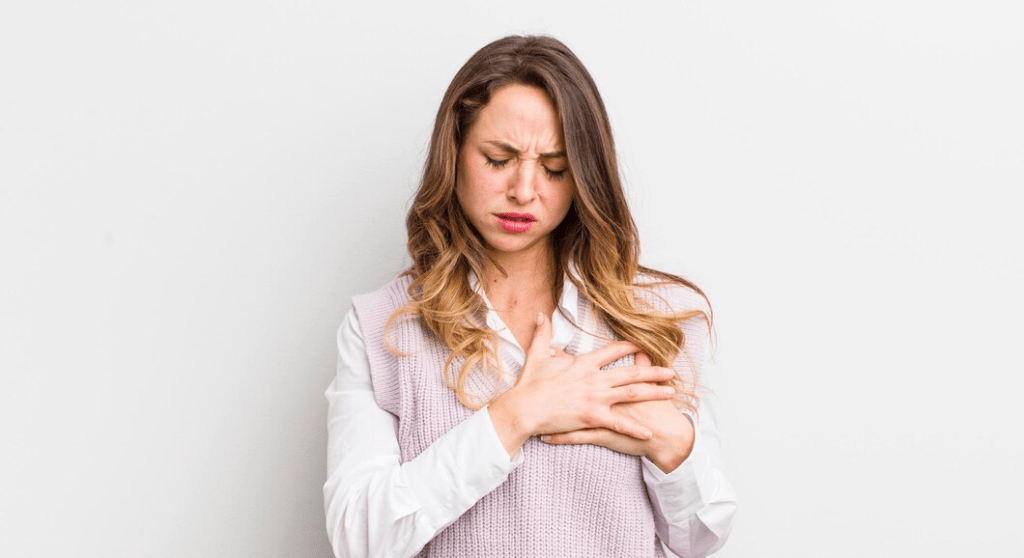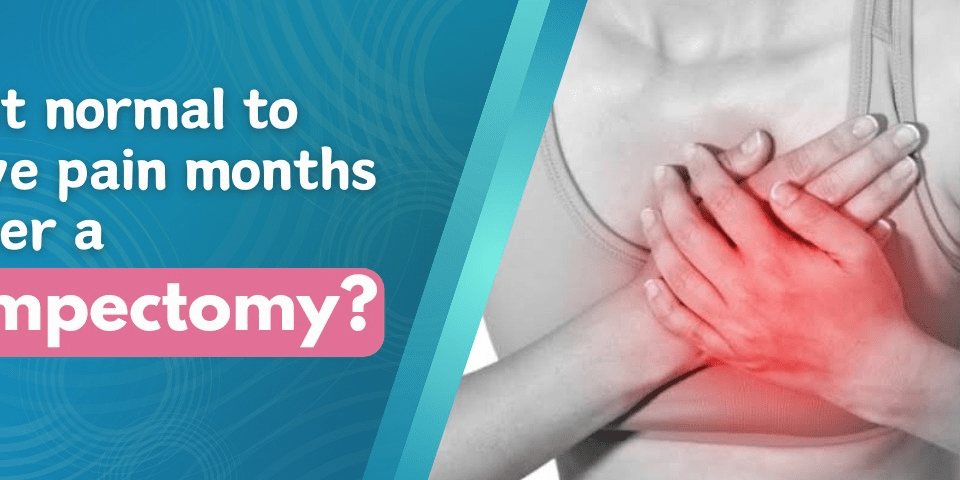Experiencing pain months after a lumpectomy is a common concern, and it’s important to know you’re not alone in this journey. Choosing the right surgeon is very important because it helps reduce problems after surgery and makes recovery go more smoothly. For those wondering, “Is it normal to have pain months after a lumpectomy?” and seeking relief, looking for a skilled breast cancer surgeon in Mumbai, your search can end here.
Dr. Garvit Chitkara is one of the top breast cancer surgeons in Mumbai. He has extensive knowledge of breast cancer surgery and can assist you in achieving a smooth recovery. Recognizing the cause of your pain after a lumpectomy is essential in improving your comfort. Dr. Chitkara will navigate you through this journey, ensuring you receive the necessary support and information.
Feeling pain months after a lumpectomy is more common than you might think, but it doesn’t always mean there’s cause for alarm. In this guide, we’ll delve into the factors that can contribute to this prolonged discomfort and highlight when it’s time to consult your doctor.
Understanding the boundaries of normal post-surgery pain is key to maintaining a positive outlook on your recovery journey. Our goal is to equip you with knowledge about the causes and management of post-lumpectomy pain, ensuring a smoother and less stressful path to healing.
Understanding Lumpectomy Surgery
What Happens: In this procedure, the surgeon removes the tumour along with a small margin of healthy tissue surrounding it. This step is taken to ensure that any potentially harmful cells are removed while striving to preserve as much of the remaining breast tissue as possible.
Post-Surgery Recovery: Healing varies from person to person, with some experiencing muscle soreness and pain temporarily. Recovery typically ranges from 1-3 weeks. Changes in the breast’s appearance, such as swelling or altered shape, are common but usually temporary.
Advantages: The key benefit is retaining most of your breast, maintaining its external appearance. This less invasive option is effective against localised cancer, offering a balance between treatment efficacy and physical impact.

Want to learn more about lumpectomy surgery? Contact your doctor today for personalized guidance on your recovery journey.
Pain months after lumpectomy: what is normal and what is not
After a lumpectomy, it’s normal to have some pain as your body heals. But this pain should get better over time, not worse, along with potential symptoms like breast swollen after lumpectomy.
Here’s a simple guide to understanding what kind of pain is normal and what might need a doctor’s check:

Mild Pain: Slight pain or being tender at the places where surgery was carried out.
Tingling or Itching: As the nerves heal, you might experience a skin uneasy or some sort of itching around the scar.
Occasional Sharp Pains: There are times, pain comes and goes in irregular intervals. It may be acute and sharp as lightning. This is what makes it possible to ease the pressure.
What’s Not Normal:
Severe Pain: If the pain is severe, and doesn’t improve after taking pain relievers.
Pain That Gets Worse: Pain that does not stop in spite of all the effort to make it improve, instead it gets worse and worse.
Signs of Infection: Scarlet, blush, strikingly swelled, or exuding surface of the surgical incision. The presence of fever may also signal an infection.
New Lumps: Feeling the lumps or thickenings in the same area or even anywhere else the breast.
If you experience pain that deviates from the expected pattern, or what’s considered “not normal,” it’s important to schedule a visit with your doctor. They can conduct a thorough check to ensure all is well and provide assistance if any issues arise.
Still experiencing pain months after your breast surgery? Let’s discuss what’s normal and when it’s necessary to seek assistance. Contact your doctor today for further guidance.
Pain management
Medications: For mild to moderate pain, over-the-counter options like paracetamol are effective. For severe pain, your doctor may prescribe stronger medications.
Cold and Heat Therapy: Cold packs provide relief from pain and swelling. Heat treatment relaxes muscles and increases blood circulation. Alternate between cold and hot water every 15-20 minutes seconds.

Ready for relief? Reach out to your doctor today and take the first step towards effective pain management!
When to consult the doctor?
Knowing when to consult a doctor for pain is important for your health.
Here are some signs that it’s time to see a doctor:
Severe Pain: Also if it’s affecting you to an even worse degree and painkillers or over-the-counter drugs have not worked out.
Pain Lasting More Than a Few Days: If you have pain that lasts for more than a week (including self-care), consider contacting the health professional.

Pain That Interferes with Daily Life: It becomes very clear that the pain overwhelms your everyday life if the force of it keeps you from living your life as usual.
Feeling uncertain? Reach out today, and let’s discuss when it’s best to seek medical advice.
Conclusion
Dealing with pain smartly means knowing when it’s okay and when to see a doctor, especially when it comes to managing lumpectomy pain months after surgery. You can try simple things at home to feel better if your pain isn’t too bad. But if the pain is really strong, keeps getting worse, or stops you from doing your everyday stuff, it’s time to ask a doctor for help. Remember, talking to a doctor is the best way to figure out why you’re hurting and how to fix it.
FAQs:
Q. Why do my breasts hurt months after lumpectomy?
A. After a lumpectomy, it’s normal for your breast to hurt as it heals. This can be because of nerves healing, scar tissue, or changes in how the breast feels. Usually, this pain will slowly go away.
Q. How long does post-lumpectomy pain typically last?
A. Everyone is different, but many people start to feel better a few weeks to a few months after surgery. If the pain is still there after this time, you should talk to your doctor.
Q. Will post-lumpectomy pain affect my long-term health or breast cancer prognosis?
A. No, feeling pain after a lumpectomy doesn’t mean your health in the long run or your cancer prognosis will be worse. It’s just part of the healing process.
Q. Can psychological factors contribute to pain after a lumpectomy?
A. Yes, how you feel emotionally can impact how you feel pain. Stress, worry, or feeling down can make pain feel worse. Talking about your feelings and getting support can help manage this pain.
Reference links: https://www.ncbi.nlm.nih.gov/pmc/articles/PMC4254680/

